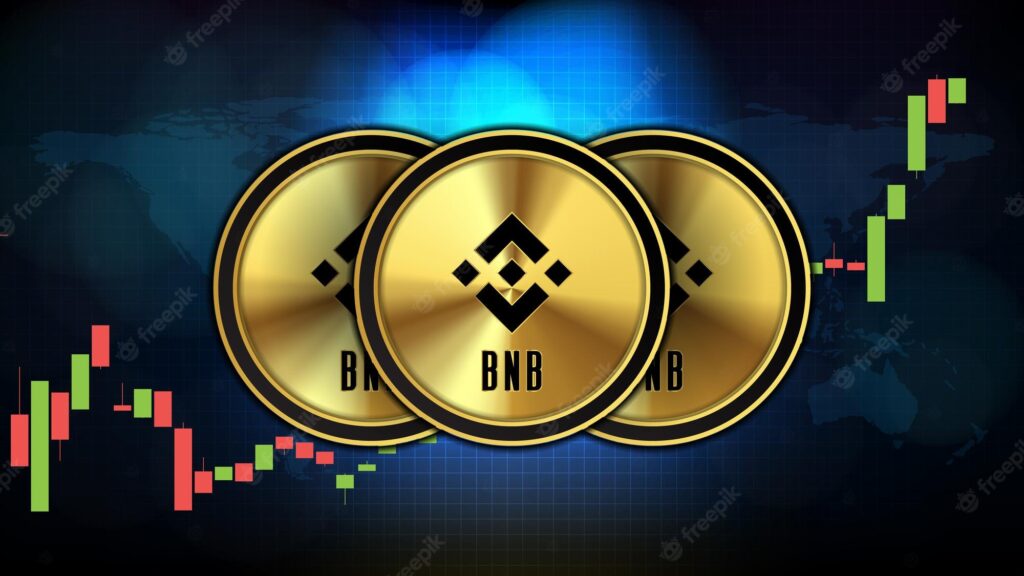Kraken co-founder Jesse Powell has publicly expressed his approval of the recent investigation into Binance, a major cryptocurrency exchange, in a post on the X social media platform (formerly known as Twitter).
Powell emphasized the importance of having long-term-oriented visionaries and shareholders in the crypto industry.
Over the past year, leaders of prominent cryptocurrency exchanges like FTX and Binance have faced scrutiny from U.S. government agencies over allegations that range from misusing investors’ funds to circumventing Anti-Money Laundering (AML) regulations.
Powell believes that these investigations offer crucial answers to questions like “How are they growing so rapidly?” and “How are they avoiding consequences?”
Powell views the legal proceedings against Binance and its former CEO, Changpeng “CZ” Zhao, as a positive development.
He believes that going after the most egregious offenders operating offshore requires significant effort.
He pointed out that U.S.-based crypto businesses like Kraken, Coinbase, and Ripple are more accessible targets for regulatory scrutiny, as they operate within the United States.
READ MORE: FTC Takes Bold Step to Streamline Investigations into AI Misuse
In light of CZ’s recent admission that Binance violated AML requirements, Powell emphasized the need for self-regulation to enhance the crypto industry’s reputation.
He stated that every illicit operation provides governments with an opportunity to cast a negative light on the entire crypto ecosystem.
Powell urged the crypto community to collaborate in restoring the industry’s image by endorsing reliable services that prioritize a long-term approach.
He also expressed support for the Know Your Customer (KYC) requirement, as long as it facilitates the legal onboarding of new users to the crypto space.
Despite Kraken’s commitment to a long-term perspective, the U.S. Securities and Exchange Commission (SEC) filed a lawsuit against Kraken on November 20th.
The SEC alleges that Kraken commingled customer funds and failed to register as a securities exchange, broker, dealer, and clearing agency, arguing that crypto assets fall under U.S. securities law.
A spokesperson for Kraken contested the SEC’s complaint and stated the company’s intention to defend itself in court.
The spokesperson expressed disappointment in the SEC’s approach, characterizing it as “regulation by enforcement,” which they believe harms American consumers, stifles innovation, and damages the global competitiveness of the United States.
Approximately $46 million in various cryptocurrencies have been siphoned from the decentralized KyberSwap exchange in a recent exploit within the decentralized finance (DeFi) space.
On November 23, the Kyber Network team issued a warning to its users through a Twitter post, revealing that KyberSwap Elastic had fallen victim to a security breach.
As a precautionary measure, they urged users to withdraw their funds and assured them that an investigation into the incident was underway.
Blockchain enthusiasts and investigators quickly identified the wallet addresses affected by the attack and those belonging to the exploiter, which were still active at the time of discovery.
According to data from Debank, the exploit resulted in the theft of approximately $46 million, including roughly $20 million in Wrapped Ether (wETH), $7 million in wrapped Lido-staked Ether (wstETH), and $4 million in Arbitrum (ARB).
These stolen funds were spread across multiple blockchain networks, including Arbitrum, Optimism, Ethereum, Polygon, and Base.
READ MORE: Mt. Gox Creditors Receive Encouraging Email on Repayments
In a separate post, blockchain investigator Spreek expressed confidence that the issue was not related to approval permissions but rather connected to the Total Value Locked (TVL) in the Kyber pools themselves.
The attacker left an on-chain message for protocol developers and DAO (Decentralized Autonomous Organization) members, indicating their willingness to engage in negotiations once they were fully rested.
As a result of the hack and user withdrawals, KyberSwap’s Total Value Locked (TVL) plummeted by 68% within a few hours, with nearly $78 million exiting the protocol.
Its current TVL stands at $27 million, a significant drop from its peak of $134 million in 2023.
Following the news of the exploit, the Kyber Network Crystal (KNC) token experienced a brief 7% decline in price but has since recovered to trade at $0.74.
It’s worth noting that the Kyber Network team had identified a vulnerability back in April and had advised users to withdraw their liquidity. Fortunately, no funds were lost in that incident.
Despite recent events that would typically be expected to have a severe negative impact on the cryptocurrency market, Bitcoin (BTC) has managed to maintain its price stability, trading near $37,000 on November 22, which is essentially unchanged from three days earlier.
This surprising performance comes in the wake of Binance’s plea deal with the U.S. government on November 21 for violating money laundering and terror financing laws.
Some speculate that entities may be manipulating Bitcoin’s price to avoid contagion, potentially through the issuance of unbacked stablecoins, especially those connected to exchanges facing regulatory scrutiny.
To gauge investor risk aversion, it’s essential to examine Bitcoin derivatives rather than focusing solely on its current price.
The U.S. government had filed indictments against Binance and its co-founder, Changpeng “CZ” Zhao, on November 14, but these documents were unsealed a week later.
CZ admitted to the offenses and stepped away from Binance management as part of the deal. The penalties, including fines imposed on CZ personally, totaled over $4 billion.
Surprisingly, this news only led to a modest $50 million decline in BTC leveraged long futures contracts, with Bitcoin briefly trading down to $35,600.
On November 20, the United States Securities and Exchange Commission (SEC) sued crypto exchange Kraken, alleging the commingling of customer funds and failure to register as a securities broker, dealer, and clearing agency.
Kraken defended itself, claiming that the SEC’s commingling accusations pertained to previously earned fees, not customer assets.
READ MORE: FTC Takes Bold Step to Streamline Investigations into AI Misuse
Another potentially impactful development was the announcement by the Mt. Gox trustee, Nobuaki Kobayashi, on November 21 regarding the redemption of $47 million in trust assets and plans to initiate cash repayments to creditors in 2023.
Although no information about the sale of Bitcoin assets was provided, investors speculated that this milestone was drawing closer.
Many experienced traders and analysts had predicted a crypto market crash if Binance were indicted by the Department of Justice (DOJ).
However, the opposite seemed to be happening. Binance’s move towards compliance could increase the chances of a spot ETF approval, as it weakens the SEC’s argument about excessive market share on unregulated exchanges.
Bitcoin’s resilience in the face of these regulatory actions is reflected in Bitcoin derivatives markets.
Monthly futures contracts for Bitcoin are currently holding an 8% premium, indicating demand for leverage long positions, though it’s lower than the 11.5% seen in mid-November.
The options 25% delta skew, which measures arbitrage and market makers’ pricing for upside or downside protection, has remained optimistic.
In summary, despite regulatory actions and potential sell pressure from Mt. Gox, the cryptocurrency market has remained buoyant, as evidenced by derivative indicators.
The liquidation of $70 million leveraged BTC longs has further reduced the pressure from negative price fluctuations, suggesting that the path to $40,000 for Bitcoin is becoming more certain, especially with upcoming ETF decisions in January and February.
Crypto lender Genesis Global Capital has taken legal action against cryptocurrency exchange Gemini, aiming to recover $689 million in preferential transfers.
The lawsuit, filed on November 21, alleges that within the 90-day period before Genesis declared bankruptcy in January, Gemini withdrew approximately $689,302,000, prioritizing its own interests over other creditors.
Genesis’s legal team has urged the court to employ remedies outlined in the United States Bankruptcy Code to rectify this perceived unfairness and ensure that Gemini is treated on par with other creditors in a similar position.
The ongoing dispute between these crypto industry heavyweights began after the collapse of the crypto exchange FTX in November 2022.
It escalated into a public feud, with both CEOs accusing each other of noncooperation and issuing threats of legal action.
In a countermove, Gemini filed an adversary proceeding against Genesis on October 27. This proceeding sought to use 62,086,586 shares of the Grayscale Bitcoin Trust as collateral.
READ MORE: Bitcoin Overtakes Ethereum in Daily Transaction Fees Amidst Ordinals Frenzy
These shares had been pledged by 232,000 Gemini users to secure loans provided by Genesis through the Gemini Earn program.
As of now, the collateral is valued at approximately $1.6 billion.
Genesis had initially filed for bankruptcy in January following the suspension of withdrawals in November 2022.
The fallout from Genesis’s bankruptcy had a detrimental impact on the Gemini Earn program, prompting the crypto exchange to initiate legal action against Genesis’s parent company, Digital Currency Group (DCG), and its CEO, Barry Silbert, for alleged fraud in July.
In another legal move, Genesis itself filed a lawsuit against DCG in September, seeking repayment of multiple loans totaling over $600 million.
This legal battle between Genesis, Gemini, and DCG underscores the complexities and disputes that can arise in the crypto industry, particularly in the realm of lending and asset collateralization.
The outcome of these lawsuits will likely have significant implications for the involved parties and the broader crypto sector as a whole.
In the past 24 hours, the cryptocurrency world has been thrust into a tumultuous whirlwind of events, primarily revolving around the renowned crypto exchange, Binance, and its CEO, Changpeng “CZ” Zhao.
These developments have sent shockwaves through the digital asset space, resulting in a rollercoaster ride that witnessed a staggering $175 million in liquidations for traders who had taken long positions.
On November 21, CZ made a startling announcement amidst his ongoing legal battle with the U.S. Department of Justice (DOJ).
He revealed his intention to plead guilty to charges related to violating Anti-Money Laundering laws and subsequently announced his resignation as the CEO of Binance.
In a parallel move, the DOJ disclosed a monumental $4.3 billion settlement with Binance, marking a significant chapter in the exchange’s history.
As part of its restructuring, Binance swiftly appointed a new CEO.
The repercussions of these events were felt far and wide across the cryptocurrency markets.
According to data from CoinGlass, a crypto derivatives platform, a staggering $175 million worth of long positions were liquidated within the span of 24 hours.
Conversely, short positions worth $51 million faced a similar fate.
The overall market experienced tumultuous movements, with over $226 million in crypto assets being liquidated during this period, affecting 92,742 traders.
READ MORE: Blockchain Association Stands Firm in Support of Tornado Cash Users in Legal Battle
Notably, the largest liquidation occurred on the BTC/USD pair of crypto exchange Bybit, where approximately $2.35 million was liquidated.
Aside from the extensive liquidations, there were significant shifts in the flow of crypto assets within the Binance exchange itself.
Data from DefiLlama, a data aggregator, indicated that Binance’s asset inflows plummeted by over $1 billion in the last 24 hours.
This suggests that some traders have temporarily halted their deposits into the exchange, possibly due to uncertainties arising from the recent developments.
Interestingly, on November 21, Binance’s native token, BNB, embarked on a bullish rally, defying the prevailing market sentiment for the day.
However, this rally was short-lived, as news of the DOJ settlement emerged. BNB reached an impressive five-month high of $271.9 before retracing to $237 at the time of writing.
In conclusion, the last 24 hours have been marked by a whirlwind of developments in the cryptocurrency space, with Binance and CZ at the center of attention.
The impact has been profound, with significant liquidations, market fluctuations, and a notable shift in asset flows within the Binance exchange itself.
The cryptocurrency market remains as dynamic and unpredictable as ever, responding swiftly to unfolding events.
The United States Federal Trade Commission (FTC) has taken a significant step to address the growing concerns surrounding the unlawful use of artificial intelligence (AI).
In a unanimous decision, the FTC approved a streamlined process for investigating cases related to AI, signaling a heightened focus on potential legal violations within the realm of AI applications.
The approved measure empowers the FTC staff to issue civil investigative demands (CIDs), a legal instrument akin to a subpoena, in AI-related investigations.
This streamlining aims to expedite the acquisition of crucial documents, information, and testimonies necessary for consumer protection and competition investigations.
It’s worth noting that the FTC retains its authority to judiciously decide when to issue CIDs.
This omnibus resolution will remain effective for the next ten years, reinforcing the agency’s commitment to scrutinizing AI-related cases.
This move by the FTC, in conjunction with other initiatives, underscores its dedication to addressing the challenges posed by AI technology.
Critics of AI have voiced concerns about its potential to facilitate fraudulent activities, particularly in areas like phishing emails and robocalls.
During a Senate confirmation hearing in September, FTC Commissioner Rebecca Slaughter, who was being considered for re-nomination, echoed the sentiment that the focus should be on tackling issues like the use of AI to enhance the persuasiveness of phishing emails and robocalls.
READ MORE: Bitcoin Overtakes Ethereum in Daily Transaction Fees Amidst Ordinals Frenzy
While AI has unlocked new avenues for human expression and creativity, it has also introduced novel challenges.
Notably, the emergence of deep fakes, digitally generated AI identities used for fraudulent purposes, has been on the rise.
According to Sumsub data, the proportion of fraud attributed to deep fakes more than doubled between 2022 and the first quarter of 2023, with a significant increase in the United States, from 0.2% to 2.6%.
Recognizing the potential risks associated with voice cloning technology, the FTC unveiled a competition on November 16 to identify the most effective methods for safeguarding consumers from fraud and other risks linked to voice cloning.
As text-to-speech AI technology has advanced, voice cloning has become increasingly sophisticated.
While it holds promise for beneficial applications like providing medical assistance to individuals who have lost their voices due to accidents or illnesses, it also poses security concerns that the FTC is determined to address.
In summary, the FTC’s approval of a streamlined process for investigating AI-related cases reflects its commitment to addressing the challenges and risks associated with the expanding use of artificial intelligence in various domains, while also emphasizing the importance of protecting consumers from potential harm.
Just two days after Microsoft’s CEO, Satya Nadella, made headlines by hiring former OpenAI CEO Sam Altman to lead a groundbreaking advanced artificial intelligence (AI) research team, a surprising twist in the tale unfolded.
OpenAI, the organization Altman co-founded, announced a remarkable decision: Sam Altman was returning as its CEO.
This surprising development was confirmed via a post on OpenAI’s official X (formerly Twitter) account on November 22, effectively retracting Altman’s previous dismissal.
In their announcement, OpenAI revealed that they and Altman were actively working together to finalize the details of this unexpected reunion.
Altman, expressing his profound commitment, shared the announcement with a heart emoji, signifying his affection for OpenAI and his eagerness to return to the organization.
Altman’s decision to step away from his newly acquired role at Microsoft was driven by his affection and dedication to OpenAI.
READ MORE: Blockchain Association Stands Firm in Support of Tornado Cash Users in Legal Battle
He conveyed his excitement about returning to OpenAI and building upon the strong partnership between the organization and Microsoft. Satya Nadella, Microsoft’s CEO, wholeheartedly supported Altman and OpenAI’s co-founder and president, Greg Brockman, in their choice to rejoin OpenAI.
Nadella emphasized the critical importance of ensuring that OpenAI continues to thrive and remains committed to its mission.
The brief departure of Sam Altman from OpenAI brought to light his pivotal role in uniting the team.
On November 20, a stunning revelation occurred when 505 out of 700 OpenAI employees signed a letter expressing their discontent with the board’s decision to dismiss Altman.
They asserted that the process through which Altman and Greg Brockman were removed from the board had jeopardized the organization’s work and undermined its mission and overall purpose.
This significant backlash from OpenAI employees, combined with the well-timed job offer from Microsoft, underscored Altman’s influential position within the AI ecosystem.
His return to OpenAI marked a pivotal moment in the organization’s history, promising renewed focus and collaboration as they continued their mission to advance artificial intelligence research.
Binance Coin (BNB) experienced a remarkable surge, surging by more than 7% within the past 24 hours, following breaking news from Bloomberg.
The report from Bloomberg unveiled that the United States Department of Justice (DOJ) is currently in discussions with Binance regarding a potential $4 billion settlement.
This significant settlement would aim to bring closure to the ongoing investigation into various alleged wrongdoings by the company, including violations of sanctions, money laundering, and fraudulent activities.
The Cointelegraph Markets Pro data indicated that BNB swiftly responded to the breaking news, spiking by 6% to reach a price of $262 just half an hour after Bloomberg’s revelation on November 20.
However, the cryptocurrency experienced a brief dip, falling to $252 approximately four hours later.
Nonetheless, BNB made a notable recovery and reached $266, marking its highest value since June 7.
This surge occurred shortly after the Securities and Exchange Commission (SEC) initiated legal action against Binance and its CEO, Changpeng “CZ” Zhao, accusing them of violating securities laws.
READ MORE: Bitcoin Nears Crucial Fibonacci Level Amidst Pre-Halving Rally
BNB’s price movement in the last 24 hours stands out among the top 75 cryptocurrencies by market capitalization, boasting the most substantial increase.
Currently, BNB occupies the fourth position among tokens, commanding a market capitalization exceeding $40 billion.
Despite this recent surge, it’s worth noting that BNB still lags considerably behind its all-time high of $686 achieved on May 10, 2021, with a decline of 61.4%.
Nevertheless, it has managed to achieve a modest 6.5% gain year-to-date.
One potential outcome of the settlement discussions envisions Binance agreeing to pay the substantial $4 billion fine while agreeing to operate within the United States under specific conditions mandated by regulatory authorities.
Bloomberg has reported that an official announcement regarding this potential agreement could be made by the end of the month.
If indeed Binance consents to this settlement, it will mark one of the largest fines ever levied in a criminal cryptocurrency case, underscoring the increasing scrutiny and regulation within the cryptocurrency industry.
The National Bank of Cambodia (NBC) has inked a memorandum of understanding (MoU) with Alipay, enabling users of the NBC’s digital currency, known as the bakong, to access the Alipay merchant network and conduct cross-border transactions through Alipay+.
This exciting development was announced at the FinTech Expo in Singapore, garnering significant attention.
The bakong, while operating on a blockchain, differs from a central bank digital currency (CBDC) in that it is a liability of the commercial banks that employ it.
Notably, the bakong accommodates both United States dollar and Cambodian riel accounts, catering to Cambodia’s heavily dollarized economy.
Under this MoU, Cambodian users can utilize the riel stored in their bakong wallets to shop at a staggering 83 million merchants worldwide linked to the Alipay network.
Additionally, Chinese tourists who possess accounts with Alipay’s extensive electronic payment system can now make purchases in Cambodia using the QR codes facilitated by the bakong KHQR system.
NBC governor Chea Serey expressed optimism about this collaboration, highlighting the convenience of these payment options and their potential to boost merchants’ revenues, thereby stimulating economic activity.
READ MORE: Atomic Wallet Requests Dismissal of $100-Million Hack Lawsuit, Citing Jurisdictional Grounds
She stated, “I’m confident this collaboration with Alipay+ will be beneficial for all parties.”
The bakong service, which launched in 2020, initially aimed to streamline remittances and facilitate purchases.
Its mobile application was developed in partnership with Japan’s Soramitsu blockchain.
Furthermore, Soramitsu has revealed plans to harness the bakong for the creation of a cross-border payment system spanning India, China, and Japan.
Impressively, the bakong is already in use in countries such as Malaysia, Thailand, and Vietnam.
In a previous development, the NBC had also signed an MoU with China’s UnionPay International in July, focusing on the utilization of QR codes for cross-border payments.
As of November 17, 2023, statistics from the Phnom Penh Post reported an impressive 35.4 million transactions totaling $12 billion using the bakong in the first half of the year, underscoring its growing significance in the digital currency landscape.
This strategic collaboration between the NBC and Alipay promises to further enhance the accessibility and utility of the bakong digital currency for users in Cambodia and beyond.
The Blockchain Association has reaffirmed its support for six plaintiffs who are suing the United States Treasury’s Office of Foreign Assets Control (OFAC) over its sanctions on the cryptocurrency mixer Tornado Cash.
In a recent amicus curiae brief submitted to a U.S. appellate court on November 20, the Blockchain Association argued that OFAC’s decision to impose sanctions on the privacy protocol was not only unlawful but also went beyond its statutory authority.
They contended that it was “arbitrary and capricious,” in violation of the U.S. Constitution.
This marks the second amicus brief filed by the Blockchain Association in support of Tornado Cash users who are appealing a previous ruling that upheld OFAC’s decision to include the cryptocurrency mixer in its list of sanctioned entities.
Marisa Coppel, senior counsel for the Blockchain Association, stressed that OFAC should focus on sanctioning individuals who misuse tools like Tornado Cash rather than banning such tools outright, which they believe falls outside OFAC’s authority.
Coppel stated, “OFAC must see Tornado Cash for what it is: a tool that can be used by anyone.
“Rather than sanctioning a tool with a lawful purpose, OFAC should remain focused on the bad actors that misuse such tools.”
READ MORE: Atomic Wallet Requests Dismissal of $100-Million Hack Lawsuit, Citing Jurisdictional Grounds
She added that OFAC’s actions set a concerning precedent and could jeopardize the privacy rights of law-abiding Americans.
In their brief, the Blockchain Association suggested that OFAC should seek approval from Congress to ban crypto mixers like Tornado Cash, thereby acting within the bounds of the law.
They argued that the appropriate course of action is to “seek legislation from Congress that would provide supplemental authority in the uniquely decentralized digital asset context—not to improperly stretch its existing authorities.”
They cautioned against a power grab that could threaten various internet-based tools that have historically been freely available.
The Blockchain Association has consistently maintained that Tornado Cash operates without an owner or operator and can function autonomously without human intervention.
OFAC initially sanctioned Tornado Cash in August 2022, alleging that individuals and groups had used the mixer to launder over $7 billion in cryptocurrencies since 2019, including funds associated with the North Korea-affiliated Lazarus Group, which stole $455 million.













